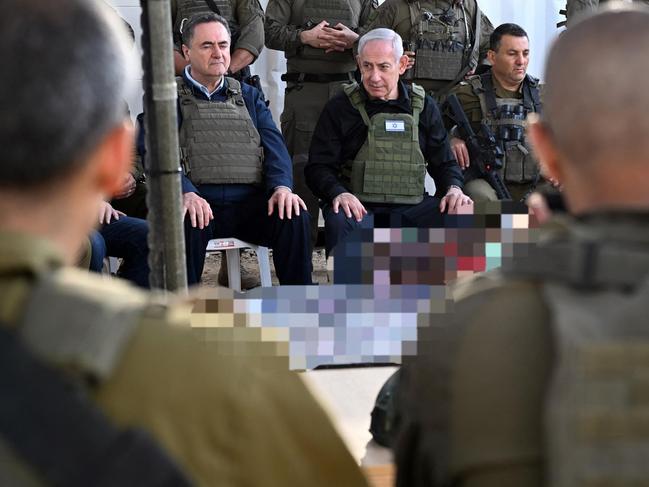Hamas ‘ready to negotiate points of contention’ in truce deal
Hamas has declared it’s ‘ready to immediately start a round of indirect negotiations to reach an agreement on the points of contention’ in a ceasefire and hostage release deal with Israel.

Hamas has declared it’s “ready to immediately start a round of indirect negotiations to reach an agreement on the points of contention” in a ceasefire and hostage release deal with Israel.
The militant group said the goal of the talks was to reach a deal that “ensures relief for our people and an end to the humanitarian catastrophe, ultimately leading to a permanent ceasefire and the complete withdrawal of the occupation forces,” The Times of Israel reports.
However it didn’t say it had rescinded the updated proposal that it submitted yesterday to US special envoy Steve Witkoff, who called it “totally unacceptable”.
The Palestinian militant group earlier said its response was positive while emphasising the need for a permanent ceasefire – long a sticking point for Israel.
Israeli Prime Minister Benjamin Netanyahu echoed US envoy Steve Witkoff’s assessment that the response was “unacceptable”, accusing Hamas of clinging “to its rejectionism”.
Israel on Friday warned Hamas to either accept the deal and free the hostages held in Gaza “or be annihilated”.

In a statement on Saturday, Hamas said it had “submitted its response … to the mediating parties”.
“As part of this agreement, 10 living prisoners of the occupation held by the resistance will be released, in addition to the return of 18 bodies, in exchange for an agreed-upon number of Palestinian prisoners,” it added.
A source within the group’s political bureau said it had offered “a positive response to Witkoff, but with emphasis on guaranteeing a permanent ceasefire and full Israeli withdrawal” from the Gaza Strip.
Witkoff said Hamas’s response was “totally unacceptable and only takes us backward”, urging the group to “accept the framework proposal we put forward”.
“That is the only way we can close a 60-day ceasefire deal in the coming days in which half of the living hostages and half of those who are deceased will come home to their families and in which we can have … substantive negotiations in good faith to try to reach a permanent ceasefire,” he added in a post on X.
Hamas alleges negotiation ‘bias’
A member of Hamas’s political bureau, Bassem Naim, later told AFP the group “responded positively and responsibly” to Witkoff’s proposal.
He alleged there was a “complete bias” in the negotiating process in favour of Israel, accusing it of disagreeing with “provisions we had agreed upon” earlier with the US envoy.
Hamas has long maintained that any deal should lay out a pathway to a permanent end to the war.
Israel has balked at that prospect, insisting on the need to destroy the group to prevent a repeat of the October 2023 attack that sparked the war.
It recently stepped up its campaign in Gaza in a bid to defeat Hamas. “While Israel has agreed to the updated Witkoff framework for the release of our hostages, Hamas continues to cling to its rejectionism,” Netanyahu’s office said in a statement, adding the group’s reply was “unacceptable and sets the process back”.
“Israel will continue its efforts to bring our hostages home and to defeat Hamas.”
A breakthrough in negotiations has been elusive ever since a previous ceasefire fell apart on March 18 with the resumption of Israeli operations.
US President Donald Trump had said on Friday that the parties were “very close to an agreement”.
Two sources close to the negotiations said Witkoff’s proposal involved a 60-day truce, potentially extendable to 70 days.
It would include the release of five living hostages and nine bodies in exchange for a number of Palestinian prisoners during the first week, followed by a second exchange the following week, the sources said.
Gaza ‘hungriest place on Earth’
Of the 251 hostages taken during Hamas’s October 7, 2023 attack, 57 remain in Gaza, including 34 the Israeli military says are dead.
“After 603 days of war, we wish to remind everyone that war is a means, not an end in itself,” the main group representing the hostages’ families said in a statement.
Israeli society was “united around one consensus”, bringing home all the remaining hostages “even at the cost of ending the war”, the Hostages and Missing Families Forum added.
Israel has come under increasing international criticism over the dire humanitarian situation in the Palestinian territory, where the United Nations warned in May that the entire population was at risk of famine.
A spokesman for the UN humanitarian agency has called the territory “the hungriest place on Earth”.
Aid is only trickling into Gaza after the partial lifting by Israel of a more than two-month total blockade, and the UN has recently reported looting of its trucks and warehouses.
The World Food Program has called on Israel “to get far greater volumes of food assistance into Gaza faster”, saying desperation was “contributing to rising insecurity”.
The health ministry in Hamas-run Gaza said on Saturday that at least 4117 people have been killed in the territory since Israel resumed its offensive on March 18, taking the war’s overall toll to 54,381, mostly civilians.
Hamas’s attack on Israel resulted in the deaths of 1218 people, mostly civilians, according to an AFP tally based on official figures.
AFP



To join the conversation, please log in. Don't have an account? Register
Join the conversation, you are commenting as Logout